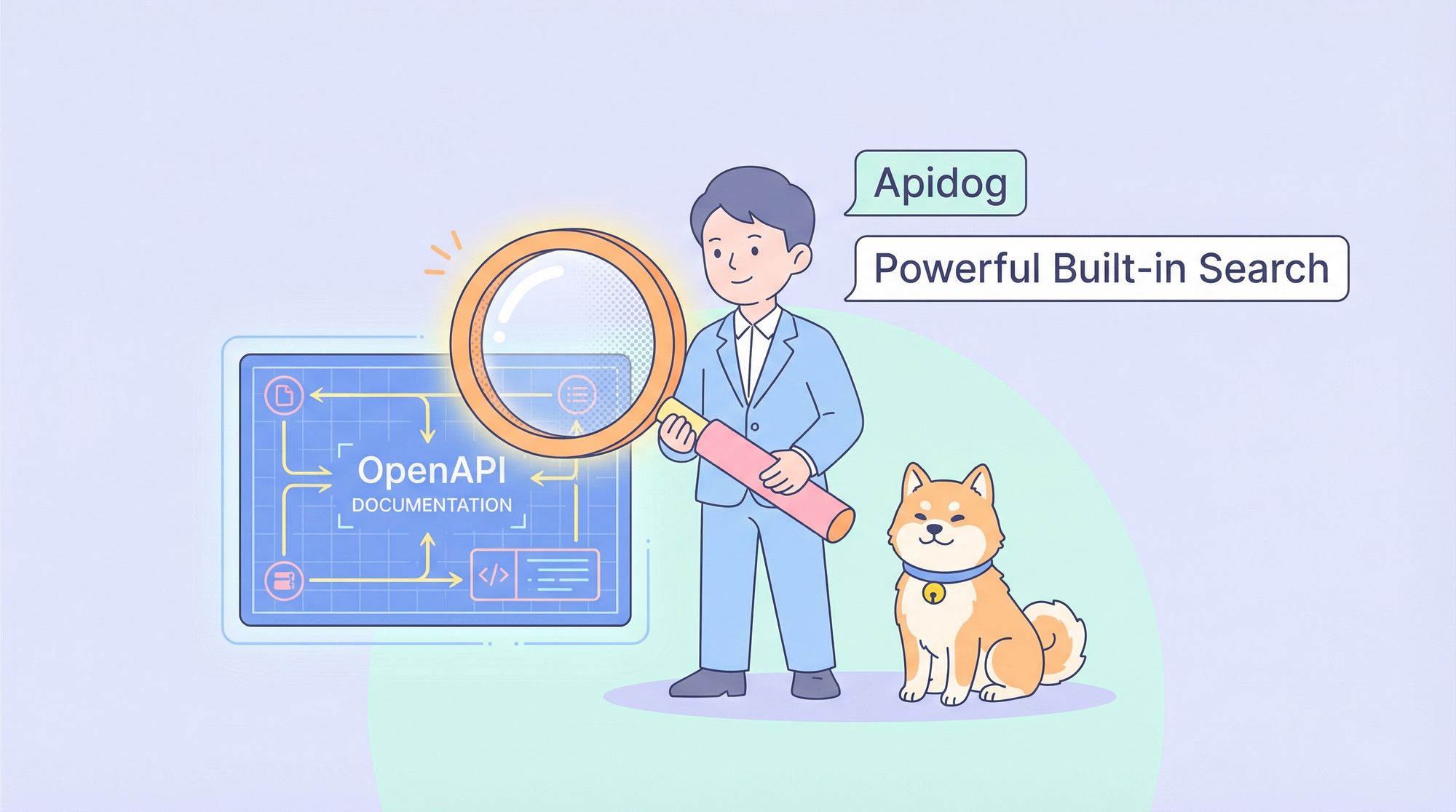Managing APIs effectively is critical for administrators who need to ensure seamless integration and communication between different systems within an enterprise. The right API management tool can enhance security, scalability, and operational efficiency.
In this guide, we will explore the top 10 API management tools designed to meet the specific needs of enterprise administrators seeking robust and reliable solutions.
What Are API Management Tools for Enterprise?
API Management Tools for Enterprise are comprehensive solutions that help organizations design, develop, deploy, and maintain their APIs effectively. These tools provide a centralized platform for managing the entire API lifecycle, from creation to retirement. They offer features such as API design and development, security and access control, analytics and monitoring, and developer portals.
By implementing API management tools, enterprises can ensure consistency, scalability, and security across their API ecosystem, while also improving developer experience and accelerating time-to-market for new digital products and services.
Key Components of API Management
API management solutions typically comprise several essential components that work together to provide a comprehensive platform for enterprises. These key components include:
- API Gateway: This serves as the entry point for all API calls, managing traffic, enforcing security policies, and handling protocol translations.
- Developer Portal: A self-service platform where internal and external developers can discover APIs, access documentation, and obtain API keys.
- Analytics and Monitoring: Tools that provide insights into API usage, performance metrics, and error rates, enabling proactive management and optimization.
- Security and Access Control: Features that ensure APIs are protected against threats, including authentication, authorization, and encryption mechanisms.
- API Lifecycle Management: Capabilities for designing, testing, deploying, and versioning APIs throughout their lifecycle.
- Integration and Orchestration: Features that allow for the connection of multiple APIs and backend systems to create composite services.
The Benefits of Using API Management Tools For Your Business
Implementing API management tools can bring numerous advantages to enterprises:
- Enhanced Security: Robust security features protect sensitive data and prevent unauthorized access to APIs.
- Improved Scalability: API management tools help handle increased traffic and growing numbers of APIs efficiently.
- Better Developer Experience: Comprehensive documentation and self-service portals accelerate API adoption and integration.
- Increased Visibility: Analytics provide insights into API usage, helping to identify optimization opportunities and track business value.
- Faster Time-to-Market: Streamlined API development and deployment processes enable quicker delivery of new services.
- Consistency and Standardization: Centralized management ensures consistent API design and adherence to best practices across the organization.
- Cost Reduction: By optimizing API performance and reuse, businesses can reduce development and operational costs.
- Regulatory Compliance: API management tools often include features to help meet industry regulations and data protection standards.
Top Enterprise API Management Tools for You to Consider
The API management landscape offers a variety of tools to suit different enterprise needs. Here's an in-depth look at some of the leading solutions:
Apidog
Apidog is a comprehensive API development and testing platform that aims to streamline the entire API lifecycle. It's designed to be an all-in-one solution for API documentation, designing, debugging, and automated testing.

Recently coming soon is the SAML SSO feature, where users use a single login credential to access multiple related but separate software systems. Enhanced security can be achieved with centrally managed authentication to reduce password fatigue; centralized user management and access control.
Key Features:
- Collaborative API design and documentation
- Automated API testing and monitoring
- Mock server functionality
- API debugging tools
- Integration with popular version control systems
Pros:
- User-friendly interface suitable for both developers and non-technical team members
- Comprehensive feature set covering the entire API lifecycle
- Strong support for team collaboration
Cons:
- Relatively newer platform compared to some established competitors
- May have a steeper learning curve for teams used to simpler tools
Pricing: Apidog offers a free plan for small teams, with paid plans starting from around $9 per user per month for more advanced features.
Microsoft Azure API Management
Azure API Management is a hybrid, multicloud management platform for APIs across all environments. As a platform-as-a-service, API Management supports that helps organizations publish, secure, maintain, and analyze their multiple APIs in one platform. It's particularly well-suited for enterprises already invested in the Microsoft ecosystem.

Key Features Azure API Management:
- Comprehensive API Gateway: Provides centralized control over API security, routing, and transformation, with built-in rate limiting and throttling to manage traffic flow effectively.
- Enhanced Developer Experience: Offers a self-service portal featuring comprehensive API documentation, streamlined subscription management, and intuitive discovery and testing tools.
- Robust Security Framework: Integrates seamlessly with Azure Active Directory, implements policy-based access control, and ensures secure exposure of both on-premises and cloud services.
- Advanced Performance Optimization: Employs API acceleration techniques and caching mechanisms, coupled with real-time analytics and customizable monitoring dashboards for optimal performance insights.
- Seamless Integration and Modernization: Facilitates easy application and B2B integration, enables legacy system modernization through API facades, and supports diverse multi-platform experiences.
- Comprehensive Governance: Centralizes policy management across APIs, implements version control and release management, and provides oversight throughout the entire API lifecycle.
Pros:
- Seamless integration with other Azure services
- Robust security features and compliance certifications
- Scalable architecture suitable for large enterprises
Cons:
- Can be complex to set up and manage for smaller teams
- Pricing can be high for organizations not already using Azure
Pricing: Azure API Management is priced based on usage tiers, with costs varying depending on features and call volume. Enterprises should contact Microsoft for specific pricing.
Kong Konnect
Kong Kconnect is a unified API management platform. It helps organizations grow faster and more securely. The platform serves as a management layer for APIs and microservices. It offers high performance and extensibility. Kong Kconnect supports both traditional and cloud-native architectures. The platform allows for seamless developer onboarding and easy API discovery. It provides a customized portal for application registration.

Key Features:
- Reduce complexity with a single pane of glass
- Start fast with the most adopted API gateway
- Make federated governance a reality
- Accelerate consumption of your APIs
- Get performance with security and compliance
- Make smart moves with API Insights
Pros:
- Highly scalable and performant
- Flexible deployment options (on-premises, cloud, hybrid)
- Large ecosystem of plugins and integrations
Cons:
- Can be complex to set up and configure for non-technical users
- Enterprise features require paid subscription
Pricing: Kong Kconnect offersplus plan for free $500 in credits for 30 day free trail, and contact sales for enterprise plan pricing for enterprise-grade security, sacalability.
Postman API Platform
While primarily known as an API testing tool, Postman has evolved into a comprehensive API development platform. It offers features for API design, testing, documentation, and collaboration.

Key Features:
- Intuitive API client for testing and debugging
- Collaborative API design and documentation tools
- Automated testing and monitoring capabilities
- Mock server functionality
- Extensive integrations with development tools
Pros:
- Widely adopted and familiar to many developers
- User-friendly interface with a gentle learning curve
- Strong community support and extensive learning resources
Cons:
- Less focused on API gateway and security features compared to some competitors
- Can become costly for large teams requiring advanced features
Pricing: Postman offers a free plan for individuals and small teams, with paid plans starting from $12 per user per month for additional features.
SwaggerHub
SwaggerHub, by SmartBear, is a platform for API design and documentation using the OpenAPI (formerly Swagger) specification. It's known for its user-friendly interface and strong focus on API standardization.

Key Features:
- Collaborative API design environment
- Automated API documentation generation
- Version control and change management
- Mock API services for testing
- Integration with popular development tools
Pros:
- Excellent support for OpenAPI standards
- Intuitive interface for API design and documentation
- Strong collaboration features for team-based development
Cons:
- More focused on design and documentation than full lifecycle management
- May require integration with other tools for complete API management
Pricing: SwaggerHub offers a free plan for public APIs, with paid plans starting from around $90 per month for teams, with enterprise pricing available on request.
Apigee API Management Platform
Apigee, now part of Google Cloud, is a comprehensive API management platform designed for large enterprises. It offers a full suite of tools for designing, securing, and scaling APIs.

Key Features:
- Advanced API analytics and monitoring
- AI-powered API security
- Developer portal with monetization capabilities
- Hybrid and multi-cloud deployment options
- API proxy for legacy system integration
Pros:
- Robust security features and compliance certifications
- Strong analytics and monitoring capabilities
- Seamless integration with Google Cloud services
Cons:
- Can be complex and expensive for smaller organizations
- May require significant resources for implementation and management
Pricing: Apigee offers various pricing tiers based on API call volume and features. Enterprises should contact Google for specific pricing.
Boomi
Boomi, owned by Dell Technologies, is an integration platform as a service (iPaaS) that includes API management capabilities. It's particularly strong in connecting cloud and on-premises applications.

Key Features:
- API design and lifecycle management
- Integration with various data sources and applications
- Low-code development environment
- Master data management
- API gateway and security features
Pros:
- Comprehensive integration capabilities beyond just API management
- User-friendly interface with low-code options
- Strong data mapping and transformation features
Cons:
- Maybe overkill for organizations solely focused on API management
- It can be more expensive than pure API management solutions
Pricing: Boomi offers custom pricing based on the organization's needs and usage. You can pay based on your needs and specific features.
IBM API Connect
IBM API Connect is an enterprise-grade API management solution that provides tools for creating, running, managing, and securing APIs.

Key Features:
- Comprehensive API lifecycle management
- Built-in security and threat protection
- Developer portal with self-service capabilities
- On-premises and cloud deployment options
- Integration with IBM's broader software ecosystem
Pros:
- Robust security features suitable for large enterprises
- Strong integration capabilities with other IBM products
- Supports both on-premises and cloud deployments
Cons:
- Can be complex to set up and manage
- May be more suitable for organizations already using IBM products
Pricing: IBM offers various pricing models based on deployment type and API call volume. Contact IBM for specific pricing details.
MuleSoft Anypoint Platform
MuleSoft's Anypoint Platform is a comprehensive integration and API management solution. It's known for its ability to connect applications, data, and devices across on-premises and cloud environments.

Key Features:
- API design and implementation tools
- Integration capabilities for various systems and data sources
- API gateway with security features
- Analytics and monitoring dashboard
- Developer portal and marketplace
Pros:
- Strong integration capabilities alongside API management
- Robust ecosystem of connectors and templates
- Scalable architecture suitable for large enterprises
Cons:
- Can be complex and resource-intensive to implement
- Pricing can be high for smaller organizations
Pricing: MuleSoft offers custom pricing based on the organization's needs. Contact MuleSoft for specific pricing information.
Gravitee
Gravitee is an open-source API management platform that offers both API management and access management capabilities. It's known for its flexibility and modular architecture.

Key Features:
- API gateway with traffic management
- Developer portal with API documentation
- Identity and access management
- Monitoring and analytics tools
- Support for various protocols (REST, WebSocket, gRPC)
Pros:
- Open-source core with commercial support options
- Flexible deployment options (on-premises, cloud, hybrid)
- Strong focus on both API and access management
Cons:
- Less well-known compared to some larger competitors
- Community support may be less extensive than for more established platforms
Pricing: Gravitee offers a free open-source version, with enterprise pricing available on request for additional features and support.
Conclusion
This comprehensive overview covers the key aspects of each tool, including their strengths and potential drawbacks. When choosing an API management solution, organizations should consider their specific needs, existing technology stack, budget, and long-term API strategy to determine the best fit.



